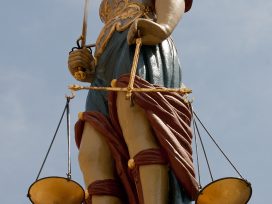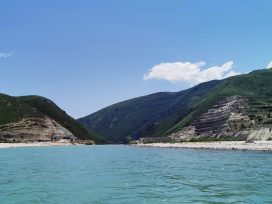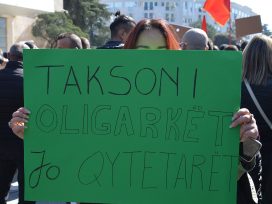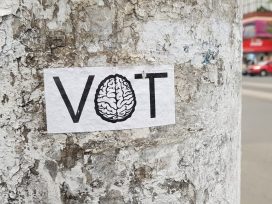‘Things are serious: the ‘great democratic revolution’ of modern times, as Tocqueville once called it, appears to be spluttering to a halt. Some observers, recalling the disasters of the 1920s and 30s, are suggesting that an anti-democratic counterrevolution on a global scale has begun.’
This is how John Keane begins his keynote article to a new Eurozine focal point gathering perspectives from eastern Europe, Central Asia and beyond, in countries and regions where the future of democracy hangs in the balance.
But is the writing really on the wall for democracy? Or does a declinist bias prevent us from recognizing moments of democratic renewal? What can ‘established democracies’ learn from those struggling for democratic standards outside the centre?
In this focal point, empirical and theoretical approaches combine to provide a snapshot of the state of democracy at a historical moment of war and instability.

In collaboration with

The original assembly in 12th century Spain was not a space for popular democracy, but for tough bargaining and long distance government. After 800 years of evolution and facing civilizational challenges, parliaments need to further transform to meet the moment and deliver on the promise of inclusion. Can watchdog parliaments gather enough steam to effectively restrain those in power?

Spelling out a law for nature
How to squeeze civilizational change into precise legal frameworks
As police carry away protesters blocking oil carriers, a very detailed and technical debate is unfolding about the framework to introduce the notion of ecocide in international criminal law. Social scientists and legal experts debate the approach, and Victor Tsilonis cautions them to always consider practical applications.

Russian aggression, climate disaster and technological singularity – it takes a professional optimist to seek the humanist potential in these threats. An interview with André Wilkens, director of the European Cultural Foundation.

Kais Saied’s power grab in Tunisia did not take place in a vacuum. A combination of constitutional dysfunction, a self-serving party system and festering social tensions had left the country at breaking point. Now the man many hailed as a saviour threatens the achievements of the democratic revolution of 2011.

Protecting nature, empowering people
Environmental protests in the Balkans
The success of recent protests against extractivism and ecosystem degradation in Serbia and Albania highlights the potential for democratic reinvigoration around ecological issues in south east Europe. But the EU has yet to prove it can act as a credible partner in this process.

Reforms that would bring Albania further towards EU accession remain hampered by corruption and lack of political will. Prime minister Edi Rama, now into his third term and without a serious challenger, embodies the contradictions of the West Balkan country’s hybrid democratic system.

Romania’s anti-vax movement has mutated into a pro-Russian protest bloc. Representing a politically disenchanted online public, the far-right Alliance for the Union of Romanians is increasingly influencing the mainstream agenda.
Although it makes for a great dramatic effect, the theories of the sudden death of democracy disregard the gradual erosion and capture of institutions, and the role of the populace – argues political scientist John Keane.
Hopes raised in 2019 of municipal counter-hegemony in Hungary have been disappointed. But in Budapest, the idea of progressive local government is kept alive by the movement for housing justice.
The Czech Republic’s liberal government has taken up the Ukrainian cause as its own. But unless it starts offering solutions to a growing social crisis, labelling the opposition as Russia’s useful idiots may not be enough.
Since the Russian war on Ukraine, post-revolutionary Armenia has been turning towards the West in search of security. But how is the new situation impacting domestically on the vulnerable South Caucasus nation? Is Armenia’s democratic light in the region as bright as some would believe?
Maia Sandu came to power in Moldova by promising social unity. But as her popularity declines, she and her party may be reverting to divide and rule. Russian interests in destabilizing the country are real but of limited impact. The greater threats to democracy in Moldova are endogenous.
Until recently the EU overlooked the Serbian regime’s disregard for democratic standards, preferring to trust assurances about the country’s commitment to the European path. But support for Russia’s war has made Vučić’s dissimulation impossible to ignore.
How democracies transform, fast and slow
A response to John Keane
For all its acuity, John Keane’s theory of democide risks confusing democratic degradation with a transformation of the political debate. Not only that, it fails to account for the radicalization of authoritarian systems once democracy has been killed.
Anthropocentrism and democracy in planetary times
A response to John Keane
Anthropocentrism causes political injustice and ecological destruction. But an inverted anthropocentrism, in which the nonhuman is granted rights, is not the solution. Only by redefining the human can democracy be about the conditions of shared life.







